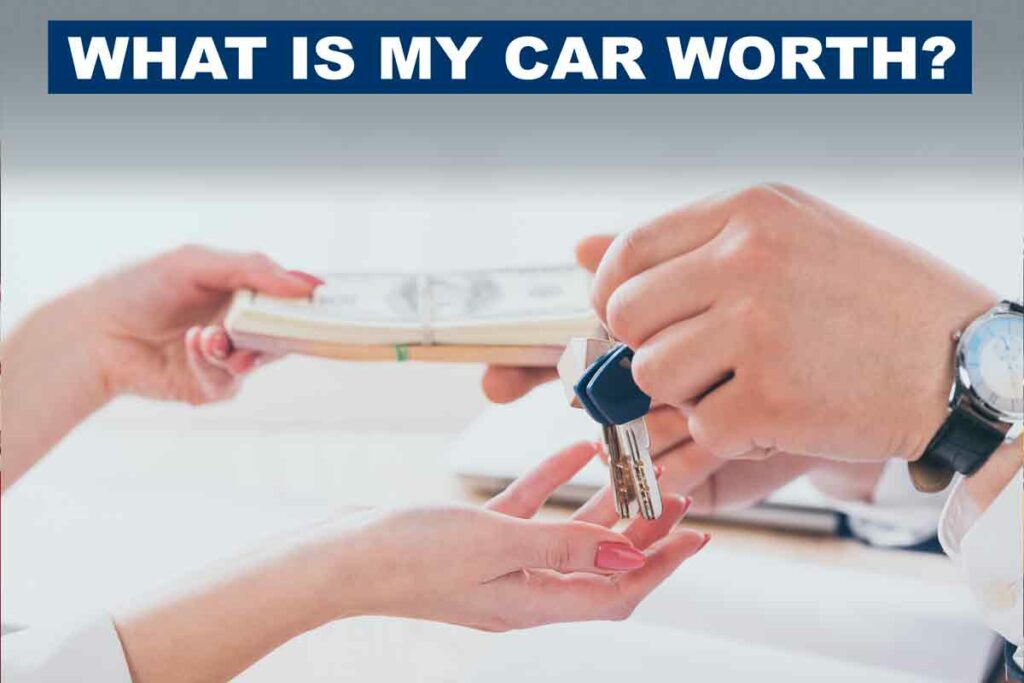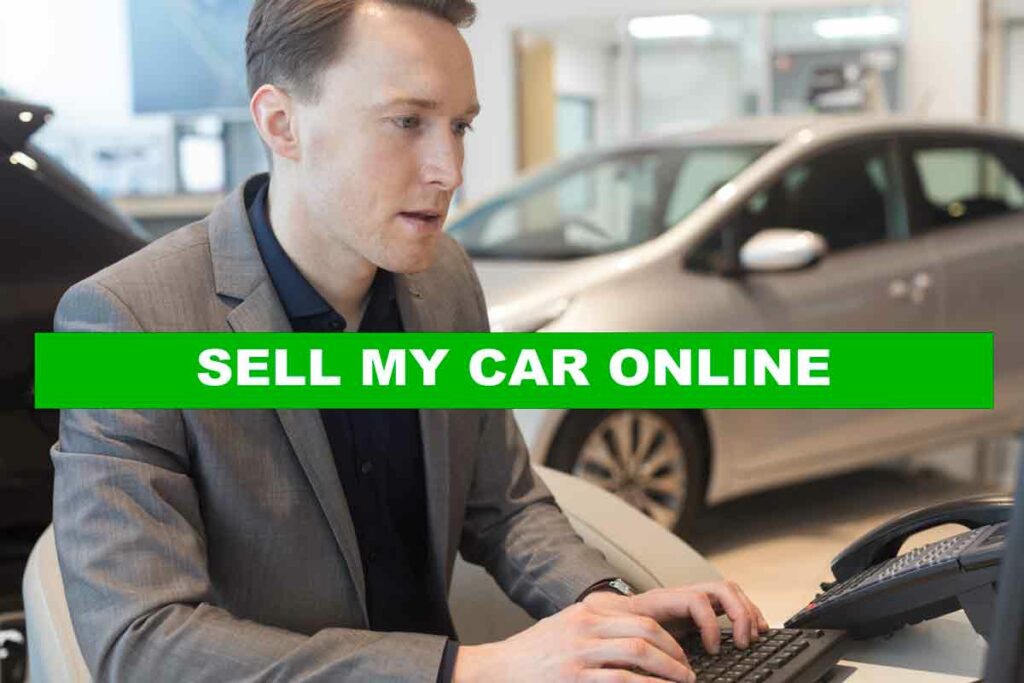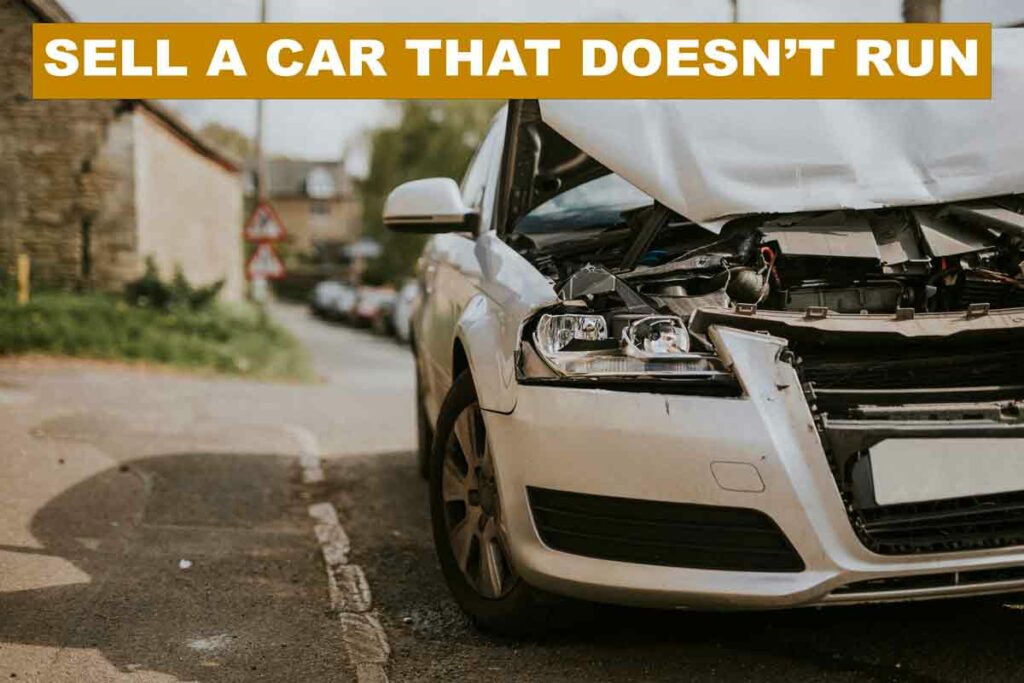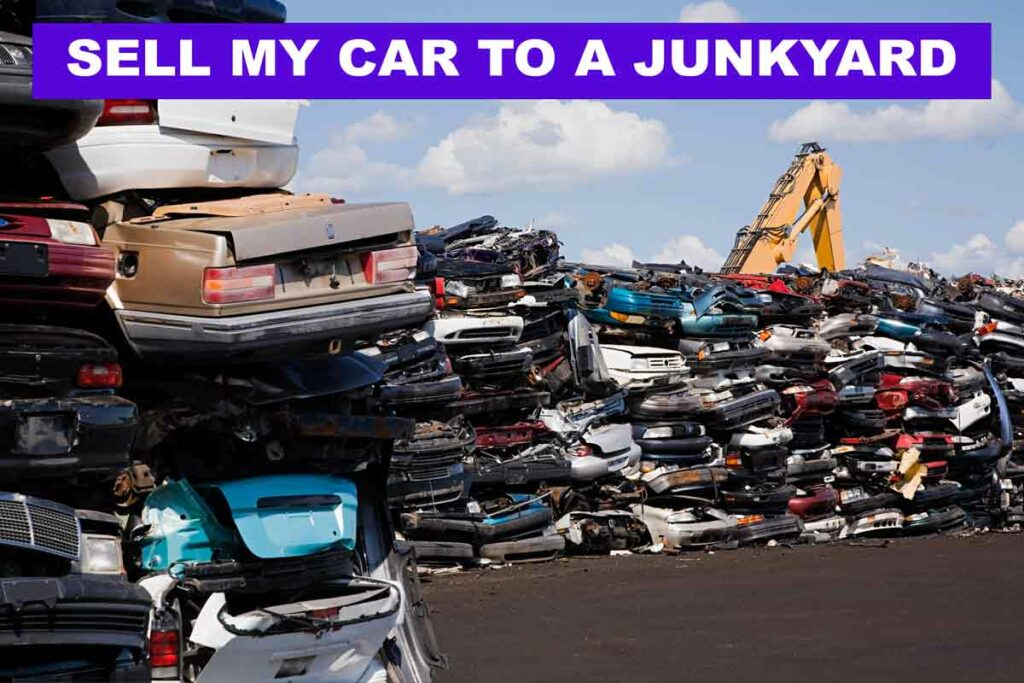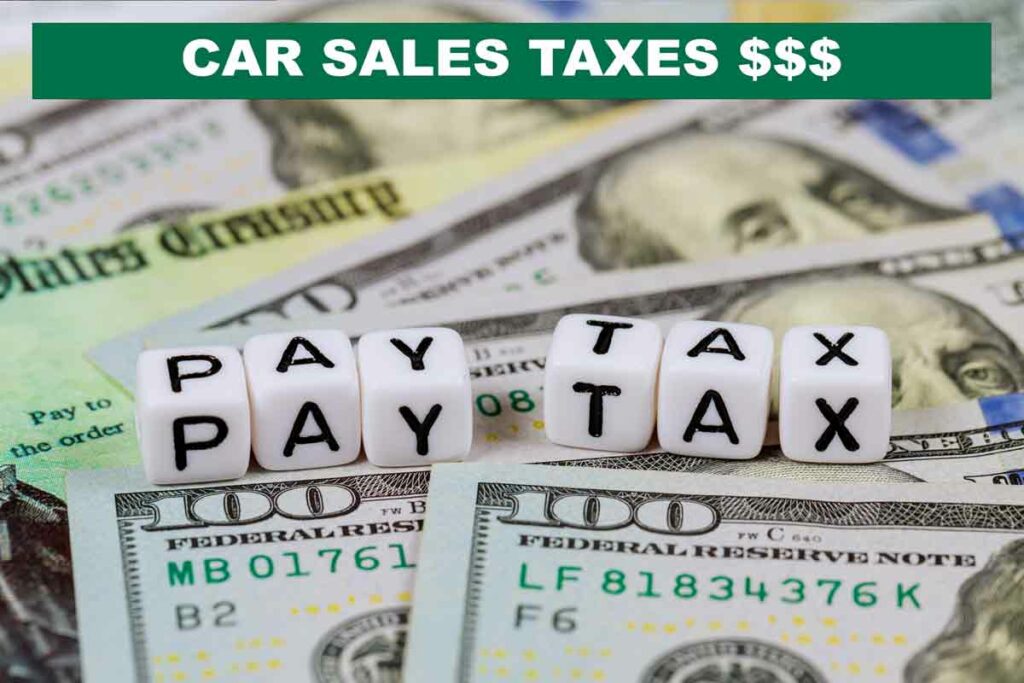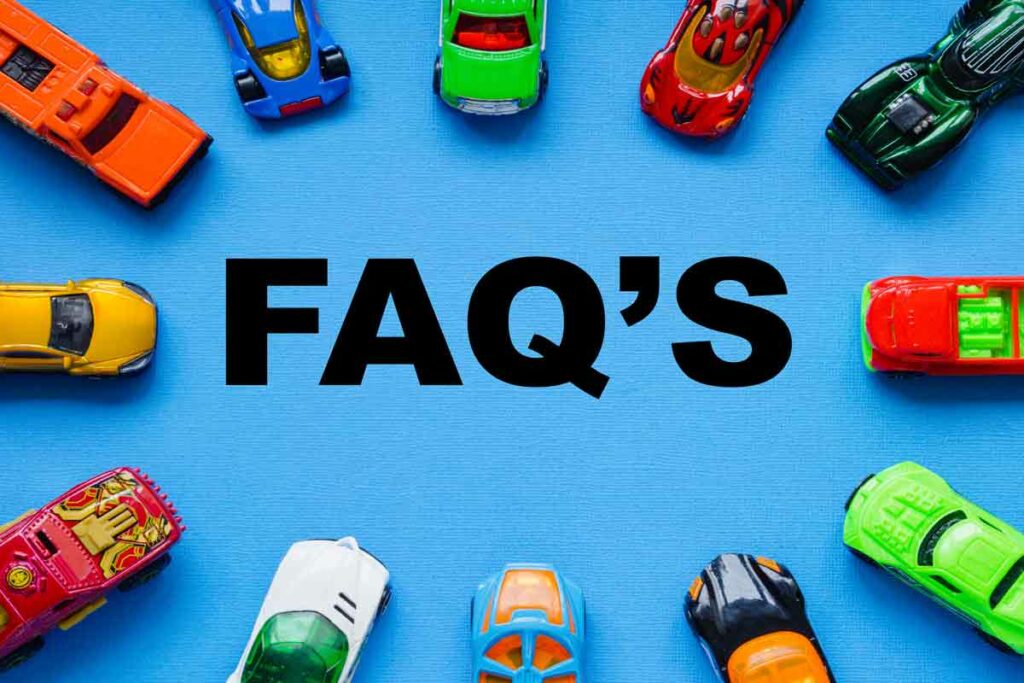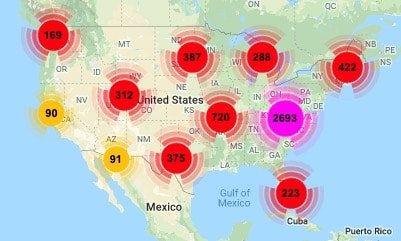Where Can I Sell My Car for the Most Money?
You're tired of your car. It's seen better days. It's been through a lot with you. You know it's time to let go, but you don't want to just let it go for anything. You want to get the most money for it. So, you start to look around at all your options. You could sell it to a car dealer, no they don't pay enough, may be an online car buyer like caremptor.com, or even Carmax. You could also try to sell it privately through a listing on a newspaper or craigslist. But which option will get you the most money for your car?
What is your car trade in value?
When it comes to trading in your car, there are a few things you need to know. First and foremost, what is the trade in market value of your car? This is the amount that a local dealer will give you for your car when you buy a new one. It's not an exact science, as the value of a car depends on a number of factors, including the make and model, the condition of the car, and even the colour. However, you can get a general idea of your car's trade in market value by using an online tool like Edmunds or Kelley Blue Book.
Once you know the approximate trade in value of your car, you need to decide whether you want to trade it in or sell it outright. If you're planning on buying a new car from the same dealership, then trading in your old one is usually the best option. This is because you'll only have to pay taxes on the difference between the price of the new car and the trade in price of your old one. However, if you're not planning on buying a new car, or if you're planning on buying from a different dealership, then selling your car outright will usually get you more money.
Sell your car to a dealership
Selling a car to a dealership can be a quick and easy process. The dealer will typically take care of all the paperwork for you and may offer a trade in values for your old car. However, car dealers typically offer lower rates than private party or online car buyers like caremptor.com.
Pros of selling a car to a dealership
Dealers offer comprehensive service, they'll handle all the paperwork and do a thorough inspection. They also have professional standards to which they must adhere in order to maintain their good reputation. This can mean that your car could be worth more money because of this extra care taken with your vehicle as well.
Safety and reliability, car dealers are typically professional and reliable. You can usually trust that they'll keep their word and pay you what they say they will. This is not always the case with private buyers.
Transparency, dealerships have to be transparent with pricing. They can't lowball you and then turn around and sell your car for a much higher price. They're also required by law to disclose any damage or preexisting problems with the vehicle.
Cons of selling your car to car dealers
Poor rates, despite the extra care and service that car dealers offer, they typically give you lower rates than the average private individual. Most likely you will not get Top dollar for your vehicle at a local dealer, for the most part they have fixed price listing that they are willing to pay for a car or truck. This is because they need to make a profit on your car in order to keep their business running.
Less negotiation room, there's less room for negotiation when selling your car to a local dealership. They already have a fixed price listing that they're willing to pay you and they're not likely to budge much on that. Most dealers will like you to trade in your old car for a new one, lock you in to a new vehicle loan and that way make more money from you. Take your car fast from them. A dealer will always want you to do a trade in, they are always looking for their next sale.
Sell your car online to an online car buyer
Selling your used vehicle to an online car selling sites like caremptor.com, Wheelzy and peddle is a great option if you want to get the most money for your car. This online prospective buyers typically offer better rates than dealerships, and they come to you to pick up the car. This means that you won't have to worry about any paperwork or transport.
Pros of selling your used car online
Get more money
Online car buyers typically offer better rates than dealerships. This is because they don't have the same overheads as a dealership, so they can afford to pay you more for your car.
No paperwork
When you sell your car to an online buyer, they'll take care of all the paperwork for you. This means that you won't have to worry about any of the hassle associated with selling a car.
No transport
Online buyers will come to you to pick up the car. This means that you won't have to worry about transportation, which can be a hassle if you're selling a car to a private party or to a dealership.
Easy as a phone call or fill up a form
You call them, agree to a price for your used car, schedule a pick up point and time for them to come and pick up your vehicle and you are done.
Cons of selling your car online
No face-to-face interaction
When you sell your car online, you won't have any face-to-face interaction with the buyer. This can be a pro or a con depending on your personal preferences.
Less money than a private buyer
While online car or truck buyers typically offer better rates than dealerships, you might be able to get more money if you sell your car to a private party.
You may have to wait longer to receive payment
Online buyers typically take longer to pay you than dealerships. This is because they need to inspect the car and make sure that it's in good condition before they can release the payment.
Sell your car to a private party through a classified ad or craigslist
When you sell your car to a private party, you can negotiate a price that's more advantageous to you. You also have more control over the process, and you can take your time finding the right buyer. However, it can be more time consuming and frustrating than selling to a dealership or an online car buyer. Your state's department of motor vehicles may require you to complete a bill of sale when selling your vehicle. This is a form that can be downloaded from the department's website. Be sure to check if there are other requirements like disclosure of the vehicle history report or car-fax.
Classified ads
Classified ads are a great way to sell your car privately. You can reach a wide audience of buyers, and you can negotiate the price that you want.
The downside of classified ads is that you'll have to deal with a lot of tire-kickers and lowballers. You also won't have any guarantee that the buyer will actually follow through with the purchase.
Craigslist ads
Craigslist is another option for selling your car to a private party. You can reach a large number of potential buyers, but you'll need to be careful about scammers.
When selling a car on Craigslist, it's important to be aware of scams. One common scam is when the buyer asks to have the car towed to their home or business, and then refuses to pay for the tow. Another common scam is when the buyer asks to test drive the car, and then never returns it. Some will offer to pay you with fake cashier's check saying they are as good as cash. Be sure to take precautions when meeting strangers for the sale, such as meeting in a public place and bringing a friend or family member with you.
Using Facebook Marketplace to sell your used cars
Facebook Marketplace is a great way to sell your used car. You can reach a large number of potential buyers, and you can negotiate the sales price that you want right on your Facebook messenger app, the selling process can be a lot easier for some people trying to make a car purchase. A prospective buyer looking at local listings to buy a vehicle online can filter searches by car prices, make, model, and show only local listings based on distance.
Selling or trade in a car on eBay Motors
eBay motors is a good option if you want to sell your car online. You can reach a wide audience of potential buyers, and you can set the price that you want for your car. However, there are some downsides to selling on eBay motors. For one, you'll have to pay a listing fee, and you may also have to pay a final value fee if your car sells. You'll also need to arrange shipping if the buyer is located far away from you. People that sells cars on eBay Motors can pay thousands of dollars in cost for shipping and fees the platform charges to make the final transaction.
Selling a car that doesn't start or run at all
Salvage your car and sell the parts
When you sell a used car, you can usually get more money for it if the car is in good condition. However, there are still ways to sell a car even if it's not in good condition. One option is to salvage the car and sell the parts.
Salvaging a car means taking the car apart and selling the individual parts. This can be a good option if the car is not in good condition and you want to get rid of the car quickly.
The downside of salvaging a car is that it can be time consuming and you won't get as much money for the parts as you would if you sold the whole car.
Sell your car to a junkyard or scrap yard
Another option for selling a car that's not in good condition is to sell it to a junkyard or scrapyard near you. Junkyards will usually pay you based on the weight of the car, and scrap yards will pay you based on the value of the metal. The value of your vehicle is measured by the current car metal values, not the trade in price, your asking price, used car market prices. They will give you an instant cash for junk cars offer to be paid with a cashier's check, business check and sometimes cash on the spot.
The downside of selling your car to a junkyard or scrapyard is that you won't get as much money for it as you would if you sold it privately or to a dealership if the car were to be running.
Don't forget about tax implications when selling a car
Federal and state laws require that you pay taxes on any money that you make from the sale of a car. Be sure to keep track of how much money you make from the car sales, so that you can accurately report it on your taxes.
You may also be required to pay taxes if you sell a car for more than its Kelley Blue Book value. When you sell a car, the buyer may be required to pay taxes on the difference between the sale price and the car's Kelley Blue Book value.
Conclusion
Selling a car can be a complicated process, but it's important to be aware of all your options. You can sell your car to a dealer, an online car buyer, a junkyard or scrap yard and a private buyer. Each option has its own set of pros and cons, so be sure to weigh your options carefully before making a decision.
Whatever option you choose, be sure to keep track of the money you make from the sale, as you may be required to pay taxes on it.
FAQ's About Selling Vehicles Online
How much money will I get for my car?
This depends on a number of factors, including the make and model of your car, its condition, and where you sell it. You can typically get more money or closer to your asking price for your car if it’s in good condition and you sell it privately, but you may have to deal with more hassle.
What are the tax implications of selling a car?
Federal and state laws require that you pay taxes on any money that you make from the sale of a car. Be sure to keep track of how much money you make from the sale, so that you can accurately report it on your taxes.You may also be required to pay taxes if you sell a car for more than its Kelley Blue Book value.
Can I sell my car if it doesn’t run?
Yes, you can still sell your car even if it’s not in good condition. One option is to salvage the car and sell the parts. Another option is to sell it to a junkyard or scrapyard near you. keep in mind that you probably won’t get as much money for the car if it doesn’t run.
What are some common scams to be aware of when selling a car on Craigslist?
One common scam is when the buyer asks to have the car towed to their home or business, and then refuses to pay for the tow. Another common scam is when the buyer asks to test drive the car, and then never returns it. Be sure to screen prospective buyers carefully and be cautious when giving them your personal information.
Where Can I Sell My Car for the Most Money?
As a car owner, you have a few options when it comes to selling your vehicle. You can sell it to a car dealer, an online car buyer like caremptor.com, carmax, or a private buyer through a listing on a newspaper or craigslist.
What are some tips for selling a car on Craigslist?
Some tips for selling a car on Craigslist include: screening potential buyers carefully, meeting in a public place, and being cautious when giving out personal information. You should also take clear and well-lit photos of your car’s interior and the outside, and be sure to list all relevant information in your ad.
Can I sell my car to a salvage yard?
Yes, you can sell your car to a salvage yard. The salvage yard will then sell the parts of your car to individuals or businesses that need them.
What documents do I need to have to sell my car?
In order to sell your car, you will need to have a few documents. These include: the vehicle title, a bill of sale, and proof of insurance. Show that there are no liens, tickets or a car loan against your car. You may also need to have a smog certification, depending on where you live.
What are some common problems with selling a car?
Some common problems with selling a car include: prospective buyers backing out at the last minute, buyers not showing up for scheduled appointments, and used cars not selling for the asking price. You may also have difficulty finding a buyer if your car is in poor condition or does not run.
Do I need to show a vehicle history report or Car-Fax when selling my car?
While you are not required to show a vehicle history report or Car-Fax when selling your car, doing so may help you to sell it more quickly. These reports can give potential buyers peace of mind, and may help you to get a higher price for your car if you also show the maintenance records.
Does CarMax give you more than trade-in value?
CarMax typically offers more than trade-in value for cars that are less than 10 years old and have less than 100,000 miles. They will also take into consideration the car’s condition, mileage, make and model when making an offer.
Where is the best place to sell a car privately?
The best place to sell a car to a private party may vary depending on factors such as the make and model of your car, its condition, and where you live. In general, however, some good places to sell a car to a private buyer include online classifieds websites like Craigslist and newspaper classifieds.
It's best to find someone close by that can buy your vehicle, and if the vehicle doesn't run you can google "junkyards near me" where they can come to you and pick up the car or truck from it's current location.
What are some tips for negotiating when selling a car?
Some tips for negotiating when selling a car include: being firm on your asking price, knowing the value of your car, and being willing to walk away from the deal if you are not getting what you want. You should also be prepared to counter any low offers that the buyer may make.
How much does eBay motors charge to sell a car?
eBay motors charges a listing fee of $60 for most cars, and a final value fee of 2.5% of the total sale price if the car is sold. These fees are waived if the car is sold for $5,000 or more.
How accurate are Kelley Blue Book, edmunds.com and caranddriver.com on prices for cars and Trucks?
Kelley Blue Book, edmunds.com and caranddriver.com are all fairly accurate when it comes to pricing cars and trucks. However, you may want to get a few different opinions before setting a price for your car.
What is the best time of year to sell a car?
The best time of year to sell a car may vary depending on factors such as the make and model of your car, its condition, and where you live. In general, however, late spring and early summer are usually good times to sell a car.
Where can I sell my car online fast?
There is an abundance of places to sell my car online, our recommendation is caremptor.com
What auto parts do customers buy often at a junk yard?
Customers often purchase a variety of parts at a salvage yard. Here's a list of some common parts that customers tend to buy:
• Engines and engine parts
• Transmissions
• Alternators and starters
• Fuel pumps and fuel system components
• Radiators and cooling system components
• Exhaust systems and components
• Suspension parts (control arms, springs, struts, sway bars)
• Steering components (steering rack, power steering pump)
• Drivetrain parts (axles, differentials, driveshafts)
• Brake system components (calipers, rotors, master cylinders)
• Wheels and tires
• Electrical parts (ECUs, wiring harnesses, sensors, switches)
• Body panels (fenders, hoods, front doors, back door, r bumpers)
• Glass (windshields, windows, mirrors)
• Interior parts (seats, steering wheels, door panels, consoles, dashboard)
• Lighting (headlights, taillights, turn signals, fog lights)
• HVAC components (heater cores, air conditioning compressors, blower motors)
• Accessories (car stereos, speakers, floor mats, cargo covers)
• Trim pieces (trim panel, grilles, moldings, emblems, badges)
